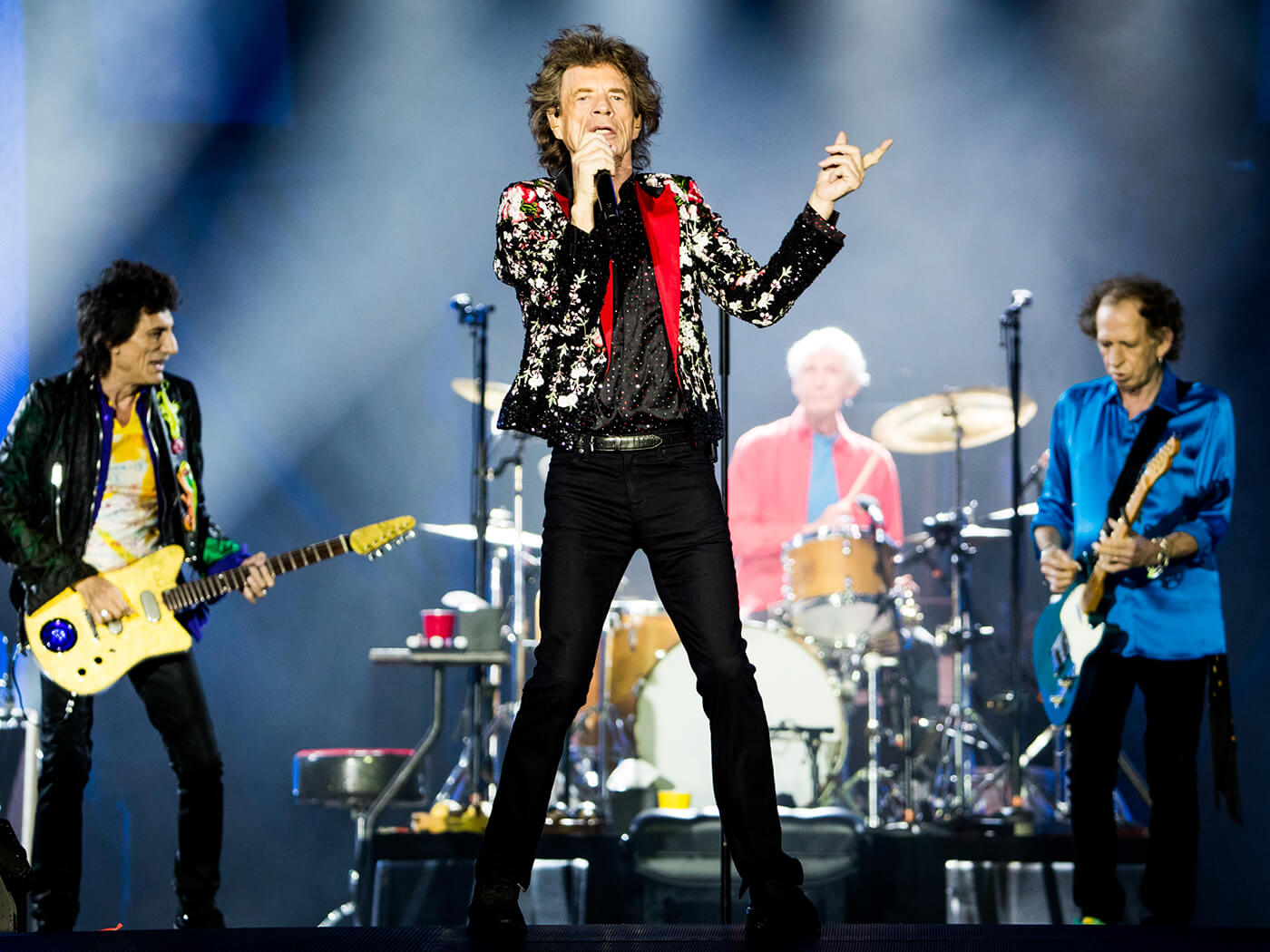THE ROLLING STONES by Angela Pulvirenti
The Stones have a history of rehearsing their world tours in Toronto; there’s an urban myth that the affinity was born out of Keith Richard’s need to have blood transfusions there in the 70’s in order to flush out the chemical impurities that may have prevented him passing drug tests at US customs. Whether fact or fiction, Toronto has remained the Stones touring testing ground. As such, the world media have been summonsed there yet again to get a glimpse of the band’s up and coming tour in an intimate club like setting. As well as some of those songs that have left an indelible imprint on the rock n roll consciousness (Ruby Tuesday, Honky Tonk Woman), the audience are treated to tracks from The Rolling Stones latest album; and what is being widely reported as their best in years – “A Bigger Bang”.
The following day, an entire floor of a 5 star hotel has been reserved for the purpose of hosting this rare opportunity to access members of the world’s most notorious rock outfit. The atmosphere is teeming with security guards, assistants, publicists and other journalists. A good humored English publicist informs me that I am Mick Jagger’s last interview of the day and wishes me the best of British luck in using the advantage to steal extra interview minutes; the fact that someone starts a stop watch when I sit down in front of my subject, significantly diminishes my confidence in this eventuating.
Despite years in the interview trenches, there is something disarming about being in the presence of someone as famous and iconic as Mick Jagger. He is incredibly slender, with hips that appear as if they would fit effortlessly into ladies size 8 jeans – slim fit. His face is such that one would imagine that a true-to-life portrait of it, would bare little contrast to a caricaturist’s impression. And, at over 60 years of age, Mick Jagger has a vitality and energy that is compelling, engaging and dare I say it, still sexy.
“A Bigger Bang” is the first Stones album in over a decade which evolved via actual, face to face collaboration between Jagger and Richards. I ask Jagger whether this has intensified the emotional investment in how the album is received.
“I am always invested in them. It’s always easy to think they are the greatest thing you have ever done when you’ve finished them because you kinda have to. You’ve invested so much of yourself in them, they take a lot of time and someone gives it to you on a computer file and goes ‘there it is’ and you think – ‘it’s all my blood in there’”.
He’s unashamedly proud of “A Bigger Bang”; and he does acknowledge that he hasn’t felt that way about all of them.
“Sometimes you release crap albums and you kind of know it. You can definitely tell by other people’s reactions as well. They usually say something like ‘well…I quite like track 3’. But this [“A Bigger Bang”] is a good one. Not just from my point of view but I can tell by the way other people are responding to it’’.
And what was it like working with his old partner in crime again.
“You know, Keith was so supportive of my songwriting in this period. I wanted to play all these different kind of instruments, so did he off course! But if I wanted to play the drums he would say ‘off you go, you did it last time, and you know you can do it’”. Charlie was ill and he was receiving treatment so for some of the album it was just Keith and I messing around with all these instruments”.
Jagger is quick to point out that his drumming didn’t make it on the album; but tells me with boyish enthusiasm – that his bass playing did. Charlie Watts and Ron Wood are both present on the album despite the fact that Watts was receiving treatment for Cancer, (he is now in remission) for the first phase of writing and producing; but the way Jagger tells it, he and Richards assumed the lions share of the creative responsibilities. The plan from the beginning was to keep it simple.
“I always wanted to involve a minimum amount of people and keep the atmosphere of the production small and direct. I think that we have achieved that. It’s relatively compact when you hear it but having said that there are songs which sound like a really big produced record even though it was made in a cupboard”.
“A Bigger Bang” is certainly testament to the fact that Mick Jagger hasn’t run out of things to sing about; infact on tracks like “She Saw Me Coming” and “Rough Justice”, his lyrics growl with you-done-me-wrong fervor; “she saw me coming, boy did I get screwed” and “once upon I was your little rooster, now I’m just one of your cocks”; (it is implausible to imagine anyone other than Mick Jagger getting away with that one).
I compliment Jagger on his ability to sing about being a victim in the love game, when his reputation certainly seems to have painted him as of more a…perpetrator.
“Well, they aren’t really victims are there”, he says playfully. “You are not human if you haven’t been wronged and done wrong in the love game and I certainly have experienced both sides of that dynamic. I mean it’s not like I do publicity stunts about being the victim” he says laughing at himself. “I don’t imagine that would go down too well. Men never play the victims very well. Women are so much better at it”!
It is over 40 years since The Rolling Stones breakthrough single “Satisfaction” was a #1 in the US and UK. By 1975, they had released over 10 albums and hit singles like Jumpin Jack Flash, Get Off My Cloud, Brown Sugar, You Can’t Always Get What You Want, Sympathy For the Devil, Wild Horses. In 1995, Bill Gates paid over 10 million dollars for the corporate rights to use a song they wrote and released in 1981 (you start me up. They were arrested for drugs in the 70’s, a fan was killed by their Hells Angels security guard in the 70’s. They have been multiple line up changes and three times as many marriages. There has been a knighthood. All through it the Stones have remained one of the most profitable touring acts in the world. Their current world tour will hopefully bring them to Australia in early to mid 2006.
After all that, how does Mick Jagger stay creatively motivated? Is he still trying to prove something to himself?
“I don’t think I ever felt like I had anything to prove. I don’t know. I certainly don’t feel that way now. I do it because I love that moment when a song that didn’t exist before – exists. I am just so happy that I can still write them. And if you write a few that you really like, you can’t help but want to share the experience”.
As Sir Mick Jagger utters that last phrase, he rolls his with mock exaggeration. The message is clear – he cares, but he really doesn’t take the whole thing too seriously. Let’s face it – he doesn’t have to.




